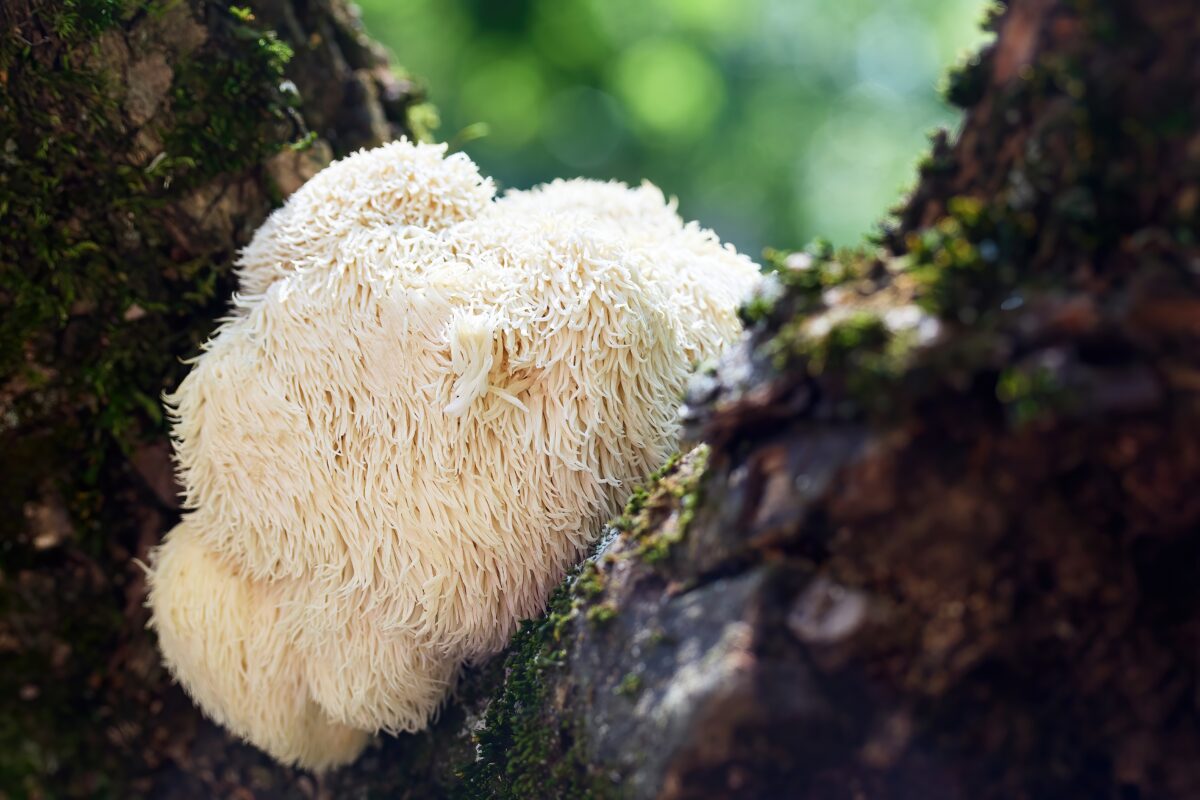For the past year, Realm of Caring, Unlimited Sciences, and Lily’s Lighthouse have been working in collaboration on an exciting mixed methods case study with multiple cases to highlight the therapeutic potential of Lion’s Mane and Reishi mushrooms for treating epilepsy.

Functional mushrooms have seen various therapeutic applications in ancient civilizations for millenia. Both Lion’s Mane and Reishi (also known as Ling Zhi) mushrooms were regularly used in ancient China for thousands of years to treat various ailments. In Traditional Chinese Medicine, Lion’s Mane was often used to treat gastrointestinal problems, improve cognitive function, and mental health conditions like anxiety, depression, and insomnia. Reishi was used in Traditional Chinese Medicine to treat ailments related to the heart, lungs, liver, kidneys, and mental health. It was especially common as a medicine for cough and asthma. Similar uses of these mushrooms have been documented across ancient civilizations. However, despite this long documented history of therapeutic application, empirical research on functional mushrooms remains more limited than one might expect. Here’s what we know.
Neuroprotective/neuroregenerative effects: Lion’s Mane has repeatedly demonstrated strong potential in treating neurodegenerative diseases such as Alzheimer’s and Parkinson’s. The mushroom contains components that are neuroprotective and promote neuroregeneration.
Cognitive benefits: Lion’s Mane has been found to improve cognitive performance among multiple populations: older adults ages 50-80 with mild cognitive impairment, healthy older adults (55+), and healthy adults. Lion’s Mane has also been found to improve memory. These improvements are likely caused by the substance’s well-documented neuroprotective and neuroregenerative properties.
Improvement in hearing: Lion’s Mane improved hearing among geriatric adults with hearing degeneration. It especially improved the ability to hear high frequencies and speech recognition.
Neurotrophic effects: Lion’s Mane has therapeutic potential to treat mood and sleep disorders. Studies have shown that Lion’s Mane can reduce depression, relieve anxiety, and improve sleep.
Anticancer: Lion’s Mane has been found to have antitumor properties. Constituents of the mushroom inhibit tumor and cancer cell growth.
Other effects: Lion’s Mane has therapeutic potential to treat gastrointestinal disorders by regulating gut microbiota and reducing inflammation. It has also been found to improve cholesterol by reducing the amount of lipids in the blood. Additionally, anti-aging properties have been observed.
Anticancer: Reishi has been found to have strong synergistic effects when used in tandem with chemotherapy or radiotherapy. A review found that patients including Reishi in the treatment were 1.27 times more likely to respond to chemotherapy and radiotherapy.
Anticonvulsant effects: There’s some evidence that Reishi has antiepileptic properties. Studies have shown that Reishi spore powder reduces seizure frequency by reducing accumulation of calcium, a primary characteristic of epilepsy.
Immunomodulatory effects: A clinical trial found that Reishi increases the number of immune cells present in peripheral blood among healthy children, and this finding was later corroborated in healthy adults. Reishi’s immunomodulatory activity contributes to its effectiveness in assisting with cancer treatment.
Cardiovascular effects: Reishi is commonly used to treat cardiovascular disease because it targets common risk factors. Reishi’s antioxidant, hypotensive, anti-inflammatory, metabolic effects work synergistically to treat and prevent cardiovascular diseases.
Metabolic effects: Reishi has been found to be effective in treating Chronic Fatigue Syndrome (CFS) by promoting the metabolic process in a way that allows the body and brain to utilize energy more effectively. Reishi has also been reported to have anti-diabetic effects.
Other effects: A variety of effects have been attributed to Reishi including: antiviral, antibacterial, prebiotic properties. Reishi has also been shown to improve high-fat diet induced obesity; by altering the gut biome, mouse models have shown reduced obesity and weight gain characteristics.
For the past year, Realm of Caring, Unlimited Sciences, and Lily’s Lighthouse have been working in collaboration on an exciting mixed methods case study with multiple cases to highlight the therapeutic potential of Lion’s Mane and Reishi mushrooms for treating epilepsy. Data collection for the study has recently closed, and our research team has been excited to see reported improvements across various epilepsy and seizure types. In fact, 90% of participants reported a mild to strong belief that functional mushrooms have had a positive impact on the way seizures affect their life. Stay tuned for our publication detailing improvements in epilepsy symptoms and quality of life among those with epilepsy using functional mushrooms!
No comment yet.
Join our email list and get immediate access to our psilocybin and ayahuasca guides. You’ll also get the latest in how we’re bridging the gap between science and soul: psychedelic research updates, real-world findings, community-driven education, personal stories and expert insights on natural medicine.
Advancing Real-World Psychedelic Research and Science-Backed Education
Unlimited Sciences is provided a nonprofit status by fiscal sponsorship through Realm of Caring Foundation.
Federal EIN: 46-3371348.
© 2025 Unlimited Sciences. All Rights Reserved.
Designed by Gloss
Comment